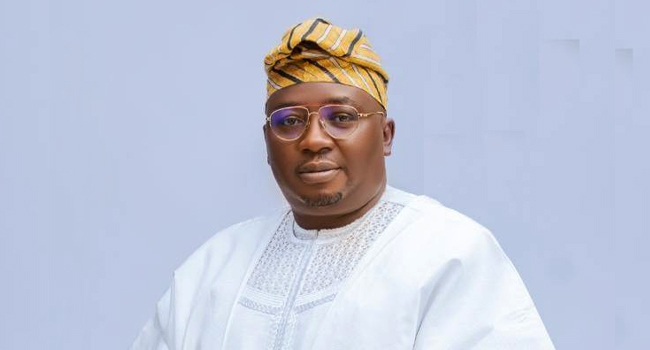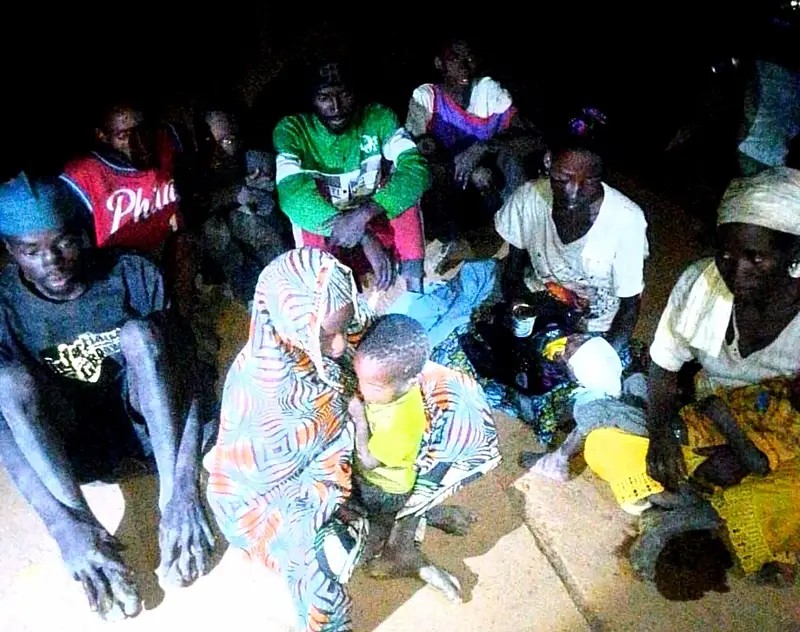Rep. Yusuf Gagdi (APC-Plateau), a member of the ‘G-7’ says his group remains unruffled in spite of change in the House rules that now allow open ballot voting.
Mr Gagdi, the Chairman, House Committee on Navy said this while speaking with newsmen on sundry issues ahead of the June 5 inauguration of 10th National Assembly in Abuja.
This is coming against the backdrop of recent agitation over plot to doctor the House of Reps Standing Order 10th edition which adopt open ballot voting.
This was allegedly aimed at compelling members-elect to openly declare the names of their nominees during the election of the presiding officers.
The lawmaker said, in whatever manner the election was going to take, the G-7 were not bothered or scared, adding that such moved had it disadvantage and advantage to both parties.
The G7 is a group of aspirants for the 10th National Assembly speaker, opposed to the consensus candidate the APC chose.
Members of the group are Reps. Ahmed Wase, Alhassan Ado-Doguwa, Sada Soli, Sani Jaji, Miriam Onuhoa, Aliyu Betara and Gagdi.
Gagdi said that the fate of opposition parties that conspired against their own party’s directive to vote for the APC’s candidate might not be savoury.
“Look at the composition of the house, the opposition has 182 put together, while the ruling APC has 178, in the circumstances, the comfortable majority we do not have as the ruling party.
“You think the 182 will not be scared of their governors and leaders who already gave them instruction regarding who becomes the speaker?” he queried.
He said the consequences of the open ballot would affect all groups, adding that the G-7 would be good to go in whatever way the house wanted to approach the election.
NAN reports that the rules referred to as the 10th edition has a new provision for electing the Speaker and Deputy through an open ballot instead of the existing rule of secret ballot that has been in use since 1999.
Section 2 (f) (iii) of the controversial clause reads as follows: “election of presiding officers” every member voting shall name clearly and in the open the candidate of his choice.”
Meanwhile, a former Clerk of the House of Reps, Mr Gani Ojagbohunmi, has confirmed that voting during the election of the two presiding officers of the Senate and House of Reps, were usually through secret ballot.
Ojagbohunmi stated this during the presentation of a paper titled: ‘Opening of a new Parliament: The case of National Assembly’, at the induction of new members-elect.
“Voting is usually by secret ballot. After the result has been collated, they are handed over to the Clerk of that house who shall submit the result of the division to the Clerk to the National Assembly (CNA).
He said the CNA shall then declare the member-elect with the majority of votes duly elected the presiding officer.
NAN
In spite of the change in House rules, which now permits open ballot voting during the election of the presiding officers, The G7 remains unperturbed. This statement was made by Rep. Yusuf Gagdi (APC-Plateau) who is a member of the G-7. He made the statement in Abuja while speaking with newsmen on various issues ahead of the June 5 inauguration of the 10th National Assembly.
Recently, there has been agitation over a plot to amend the 10th edition of the House of Reps Standing Order, adopting open ballot voting. The intention of this plot was to compel members-elect to openly declare the names of their nominees during the election of the presiding officers.
Gagdi, who is also the Chairman of the House Committee on Navy, said that the G7 are undaunted even though the election may be resolved in any manner. He added that both parties had advantages and disadvantages. The G7 is a group of aspirants for the 10th National Assembly speaker, opposed to the consensus candidate the APC chose. The group consists of Reps. Ahmed Wase, Alhassan Ado-Doguwa, Sada Soli, Sani Jaji, Miriam Onuhoa, Aliyu Betara and Gagdi.
Gagdi intimated that the fate of opposition parties that conspired against their own party’s directive to vote for the APC’s candidate would be unfavourable. He mentioned the composition of the house, saying that the opposition had 182 members, while the ruling APC had 178. He went further to suggest that the governors and leaders of the opposition parties might intimidate their members to get them to vote against their wish.
Gagdi also noted that the new provisions for electing the Speaker and Deputy, as specified in the 10th edition, had a new clause that stipulates the adoption of open ballot voting. Section 2 (f) (iii) of the clause requires that every member voting declare the name of their chosen candidate openly.
Earlier, a former Clerk of the House of Reps, Mr Gani Ojagbohunmi, during the induction of new members-elect while presenting a paper titled “Opening of a new Parliament: The case of National Assembly” confirmed that during the election of the two Presiding Officers of the Senate and House of Representatives, voting usually takes place through secret ballot. After the result is collated, they are handed over to the Clerk of that house who will then submit them to the Clerk to the National Assembly (CNA), who shall declare the candidate with the majority of votes as the presiding officer.
In conclusion, the G-7 has made it known that the adoption of an open-ballot system won’t affect the outcome of the election. They still remain resolute in their quest for the speakership position.



